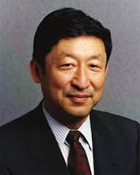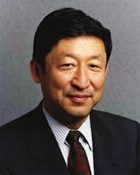A Blog About Understanding The Toyota Production System and Gaining Its Full Benefits, brought to you by "The Toast Guy"


My First Lesson

Just a little over a year ago we lost Hajime Oba, one of the great pioneers of TPS learning in the US. In 1992, he was the founding manager of the Toyota Production System Support Center (TSSC), a non-profit affiliate of Toyota Motors of North America (TMNA), established to share TPS knowledge with North American organizations that showed a sincere commitment to learn and apply what he referred to as “true TPS.” My company, United Electric Controls, submitted a request to TSSC for assistance in 1995, and it was our good fortune to begin our TPS journey with Mr. Oba. In the next several weeks, I’ll share a few stories to honor his rare leadership. Here’s the first, which represented my first meeting with Mr. Oba, just before TSSC agreed to work with us:
On the day of Hajime Oba’s initial visit to our site, I had arranged for a short meeting with our owners to discuss the nature of TSSC’s service and to reaffirm our commitment to actively support the process. Next, we went to floor to observe. “Can you take me to shipping,” Mr. Oba requested. This location, I learned sometime later, was selected because it was the point closest to the customer. As we stood in an aisle next to the shipping department, Mr. Oba’s eyes traveled to persons working, then to pallets of material and then to the shipping dock. After a minute, he turned his glance to me for a moment and then back to a scan of the shipping area. He was sizing up the situation both as a whole and as a series of operations. I heard a faint murmur as he watched: “Hmm.”
Then, he turned back to me and asked this question: “Where’s the shipping?” I responded, “It’s right here, we’re looking at it.” Unimpressed with my answer, Mr. Oba murmured again as he turned away as if to invite me to watch with him. As we observed, he declared, “I don’t see anything shipping.”
“Oh,” I thought to myself. He was not referring the department. He was asking why no products were leaving the shipping to dock en route to the customer. “It’s still early in the day.” I explained, “Our first shipment is not until 10:00 a.m.” Even as I uttered these words, I realized this was a bad answer. “Why 10:00 a.m.?” Oba inquired. “Because that’s when UPS picks up,” I said.
Mr. Oba looked at me with an expression of mild impatience, but as I was waiting for another “why”, he shifted his line of questioning. I suspect he felt he’d already made his point. Instead he walked to a pallet of goods sitting next to the aisle and, pointing to it, asked , “When is this shipping?” A little frustrated at my ignorance, I explained that I’d have to check with the shipping supervisor to answer that question. Mr. Oba waited while I went in search of information.
I returned with an answer that I felt would conclude this line of questioning: “The supervisor says this order is on credit hold.” In my mind, the order status was beyond the purview of operations. But Mr. Oba persisted. “How long has it been sitting here?” Once again, I had no answer and had to rely on my shipping supervisor who advised that that order had been sitting complete for nearly a month! As I related that information to Mr. Oba, his gaze seemed to ask “What kind V.P. of Operations would let a customer order sit in plain site for a month?” I was embarrassed, but foolishly persisted, “It’s on credit hold and we can’t do anything about that.”
“Why is it on credit hold?” Mr. Oba asked. Flustered, I replied, “I don’t know, but I’ll find out.” A call to our accounting department yielded a “We’ll have to check into that” response. I promised Mr. Oba I would find the answer.
About an hour later, I received an explanation that was both humiliating and illuminating. The order was on credit hold because one of largest distributors, ABC Sales, had exceeded their credit limit. “Are they a bad payer?” I asked, Bob, our accounts receivable associate. “Oh no, they’re just buying a lot this month,” he said, “and that puts them over their credit limit.” “Then why don’t you release them from credit hold?” I asked. Bob responded, “We will, absolutely, if we are authorized by sales management.”
My credit hold odyssey continued to the sales department. “Why haven’t you released ABC Sales’ order from credit hold?” I asked Charlie, the sales manager. Charlie explained, “We have no internal visibility of orders on hold. Unfortunately, we usually find out when customers like ABC Sales call us to complain about a late shipment.”
Several hours had passed. Mr. Oba had already departed, but was aware of my investigatory efforts if not the final answer to his question. Ultimately, that answer led to a process change that would trigger a credit hold inquiry immediately rather than after a customer complaint.
I asked myself, why had I not seen what Mr. Oba had uncovered in a glance? I missed the details and I also could not see the big picture. Perhaps that was Oba’s first lesson for me.
What do you see when you go to the floor? Please share a comment or story.
O.L.D.
BTW — TSSC will be joining us on October 6-7 at our 17th annual Northeast L.E.A.N. Conference, as will the Shingo Institute, the Lean Enterprise Institute, MEP’s from New England, AME, SME, MHLN and a host of great presenters. What a great opportunity to get out in a safe CDC-compliant environment to re-energize your Lean journeys and establish new relationships with other passionate Lean organizations.
But – if distance or company policy prevent you from traveling this year, we’ll not only be live and in-person we’ll also be live streaming for virtual attendees – and recording all sessions for all attendees! Check out the outstanding agenda at this link: Getting Back to the Future. Hope to see you at the MassMutual Center in Springfield MA this October.